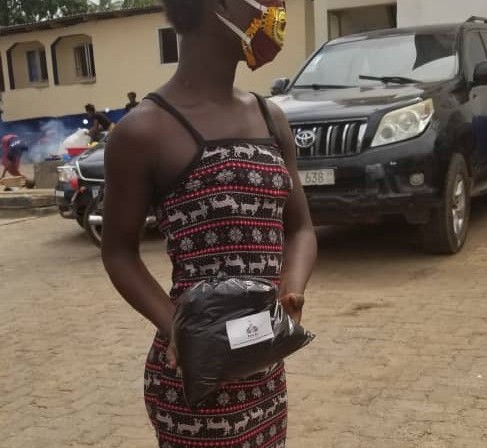“I was so scared when I was arrested, I couldn’t say anything to the police.”
During Sierra Leone’s periodic lockdowns, which started on 5th April, a number of girls and women were arrested for going out to get necessities, like food and water, for their families.
Among them was Isatu*, a fourteen years old girl living with her parents in Freetown. During a three-day lockdown, her family ran out of water. Isatu’s mother sent her out to fetch water at a nearby community pump.
On her way home, she was arrested by police and detained for violating lockdown restrictions. She was so scared that she had trouble speaking when she was arrested.
Because one of our paralegals lived around her area, he heard about her story soon after she was arrested. He was able to quickly intervene on her behalf and she was later released and allowed to fetch water for her family.
A similar incident took place in Grafton New Camp, a community that survives by collecting water from sources in the area. During a lockdown period their water supply was running low, so community members left their homes to fetch water. On their way there, they were stopped and apprehended by the police. Their leader, Adama*, was subsequently arrested.
Our paralegal intervened on behalf of the community and Adama was released. The community was then allowed to fetch water but for only two hours, which was not enough time for the whole community to collect water.

The repercussions of lockdowns and other containment measures are felt most acutely by the country’s most vulnerable populations – the very communities we support through our legal and advocacy work. Limited mobility can interfere with access to basic needs such as food and water. Poor and vulnerable persons may not be able to adhere to lockdown laws and regulations; not out of defiance against the lockdown, but out of desperation to secure food and essentials to care and feed their families.
It is imperative that lockdown regulations and laws do not create offences or criminalise otherwise legal activities that result in arrests and detention. This will only result in greater pressure on already strained systems and increase the risk of viral transmission in crowded and poorly ventilated prison cells. The use of arrests and detention should be avoided and instead non-custodial measures, such as cautions or warnings, should be encouraged.
* names changed to protect their identities
